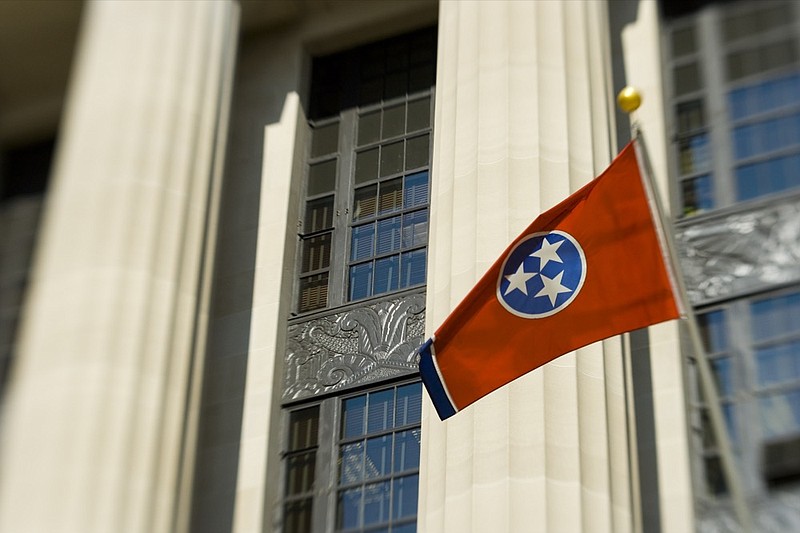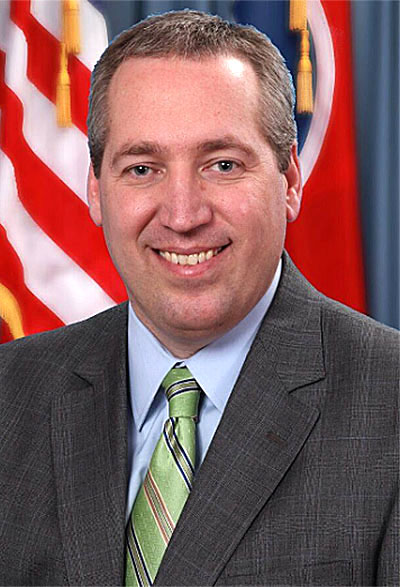NASHVILLE - At least four of Tennessee's 31 district attorney generals say they won't prosecute anyone charged with criminally violating Gov. Bill Lee's coronavirus-related executive orders impacting businesses.
The elected prosecutors cite several reasons for their decisions. They range from underlying questions about the constitutionality of Lee's orders to vagueness in language and sometimes disparate treatment of impacted businesses based on geography and type of activity.
All four of the district attorneys are Republicans who represent multi-county districts in Southeast and Middle Tennessee.
Among them are 10th District Attorney General Stephen Crump of Cleveland, who announced last Wednesday his office won't enforce criminal sanctions or penalties against anyone violating one of fellow Republican Lee's executive orders.
"While I have great respect for Governor Lee, I cannot in good conscience, and with fidelity to my oath, allow what I believe to be unconstitutional criminal proceedings to take place," said Crump, whose district includes Bradley, McMinn, Monroe and Polk counties, in a statement. "There cannot be two standards of criminal justice in this state. It is not constitutional, nor is it just."
Asked by the Times Free Press about the prosecutors' decisions during his conference call with reporters on Friday, Lee, a Republican, pushed back.
"It's very clear the executive orders are constitutional," the governor said. "And that they're intended in this particular instance to provide for public safety and to protect Tennesseans and to make decisions that will ensure the health and safety of our citizens. That's why they've been made."
The prosecutors' sentiment underscores some of the pressures Lee has been under in recent weeks. And that sentiment, also shared by a number of Lee's fellow Republicans in the General Assembly, appears to be a factor in his move to begin lifting many of the legal restrictions he imposed earlier on economic activity.
He's allowed restaurants to resume dine-in services and retail businesses to re-open under guideliness rather than requirements. And he says businesses will readily adopt them under what Lee calls the "Tennessee Pledge."
It calls for businesses in a growing number of areas to commit to safely operate under recommended guidelines but not mandates.
One of the tipping points for Crump and fellow prosecutors Craig Northcutt of Tullahoma in the 14th Judicial District, Bryant Dunaway of Cookeville in the 13th Judicial District and Brent Cooper of Columbia in the 22nd District was Lee's Executive Order 30.
Issued last Tuesday and effective Wednesday, the order among other things continued the closure of "close contact personal services" such as barber shops, hair and nail salons and "entertainment, recreational, and certain other gathering venues" while still banning "social or recreational gatherings of 10 or more people."
But also on Wednesday, Lee announced he will lift previously imposed closures for personal care businesses and allowed them to start reopening as the governor seeks to restart the state's economy amid massive unemployment.
Some Democrats and physicians have have been critical of the moves, saying Lee's lifting of mandates, increasing nonessential business activity and moving to guidelines risk fanning the spread of the potentially deadly virus.
Tennessee physicians say the state is by no means ready to reopen.
Some prosecutors continued to weigh in even after Lee announced Wednesday that he intends to allow those close personal care services to resume business this coming Wednesday under guidelines.
In a Times Free Press interview on Friday, Crump said he has had "significant constitutional concerns with all of this, but my decision was specifically related to the criminal enforcement of these laws and the differing effects in different counties and the differing effects among conduct committed in different places."
For example, Crump noted, Lee is allowing Knox County and the state's five other largest counties that operate their own health departments to set their own policies. The governor has retained direct control over the 89 other counties that have state-run health departments where his executive orders hold sway.
"My concern and the reason I took the position that I did was because we can't have things that are illegal in one county or legal in one county and a criminal offense in another county," Crump said.
He added that "citizens of a particular county shouldn't be penalized or punished simply because of geography. My argument is not with the General Assembly or with the governor. I just simply don't believe that the people of this district should be exposed to criminal offenses when other conduct is allowed that is identical."
Crump said he has no objections to civil enforcement, but when criminal penalties and possible loss of liberty are at stake he has serious concerns. Asked whether Lee's move toward guidelines instead of mandates with potential criminal charges eases his worry, Crump said, "I think it does.
"None of them are enforceable from the perspective of the criminal law," Crump said. "That is certainly the model in my mind to approach it by."
District Attorney Northcott in a statement on Thursday said while he's held "grave concerns" about the constitutionality of Lee's executive orders from the start, he thinks as the governor modifies them "they are becoming increasingly vague and arbitrary.
"How does it make sense that a restaurant with a capacity of 400 can serve 200 people, but a barber who rarely has more than 5 people in his shop at a time can't ply his trade to support his family?" Northcott asked.
Citing his powers of prosecutorial discretion and his own belief "that I cannot prosecute person for simply engaging in legal activities such as operating their lawful business," Northcott said Coffeee County juries "wouldn't stand for such action on my part."
Northcott also said he has "made it clear within law enforcement circles at the outset that I will not and have not taken action to prosecute anyone for the violation of an Executive Order."
In his own posting to Facebook on Wednesday, District Attorney Dunaway said, "I feel compelled to exercise my prosecutorial discretion by choosing not to criminally prosecute citizens of the 13th Judicial District for operating certain lawful businesses and engaging in ordinary lawful activities.
"As I travel our district, I see small businesses with their doors shut and the lights out, while at the same time I see large retail stores full of customers and no empty parking spaces in their lot. The Executive Orders in some respects appear to be vague and arbitrary," Dunaway added.
Ditto for District Attorney Cooper, who in a Facebook posting announced "I will not prosecute anyone criminally for activities that would, but for these somewhat arbitrary Executive Orders, be lawful. With that said, there may be other repercussions for businesses found to be in violation of these orders. I have no control over licensing agencies of the state and local governments."
Contact Andy Sher at asher@timesfreepress.com. Follow on Twitter @AndySher1.

